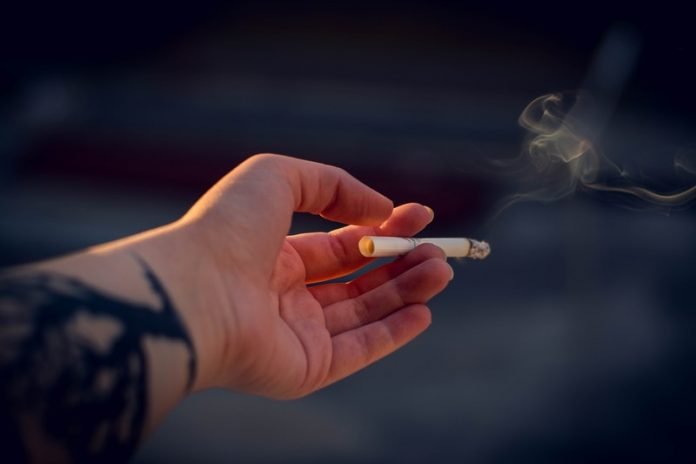
In a new study, researchers found for the first time that cigarette smoke toxicity impacts the protective biofilm in the lungs, particularly concerning when paired with COVID-19 respiratory issues.
The research was conducted by a team at Ben-Gurion University of the Negev.
Though many health factors are known about smoking, little is known about the overall toxicity potential of its ingredients.
In the study, the researchers developed a new smoke testing system called a bacterial panel with genetically modified bioluminescent bacteria to measure both filtered and unfiltered cigarette smoke’s complex molecular mixture.
They found that cigarette smoke affects communication between bacteria, which can affect microorganisms in the body and cause a negative effect on the formation of biofilm, which protects lung bacterial colonies.
The study examined 12 distinct types of commercial cigarettes of varying prices bought at local Israeli stores, revealing that filters helped somewhat in lowering toxicity.
The experiment proved that the filter is a crucial element in reducing the harm of smoking so therefore, new filters need to be developed to reduce toxicity.
The team says tobacco companies, research organizations, and academics can use the bacterial panel and its accompanying system to cost-effectively monitor the overall toxicity of various commercial cigarettes and test their filter effectiveness.
The recently developed smoke testing system, based on the bacterial panel, is a new system for researchers that need to analyze the toxicity of smoke at a reasonable cost.
One author of the study is Prof. Robert Marks.
The study is published in the journal Talanta.
Copyright © 2021 Knowridge Science Report. All rights reserved.



